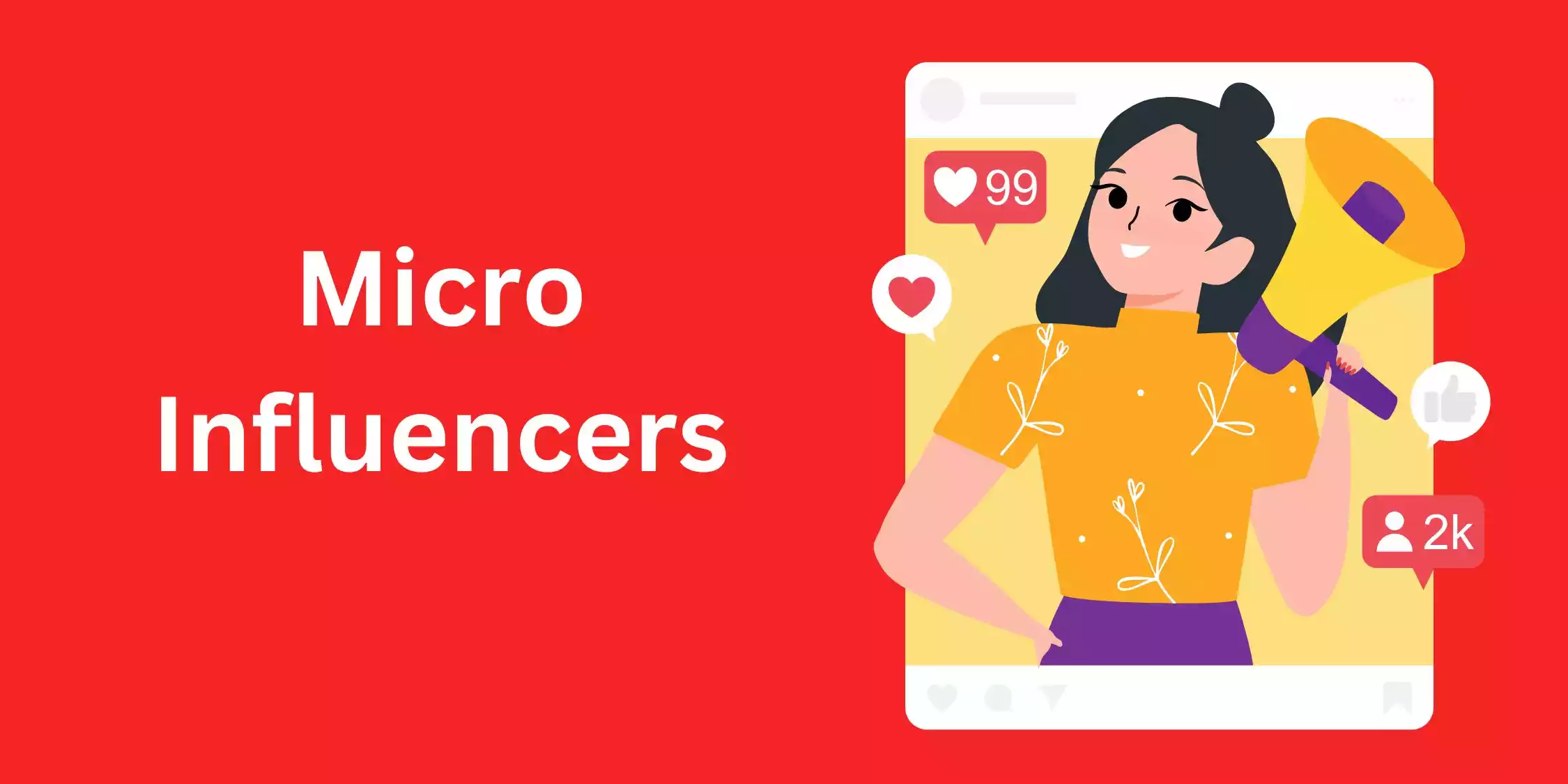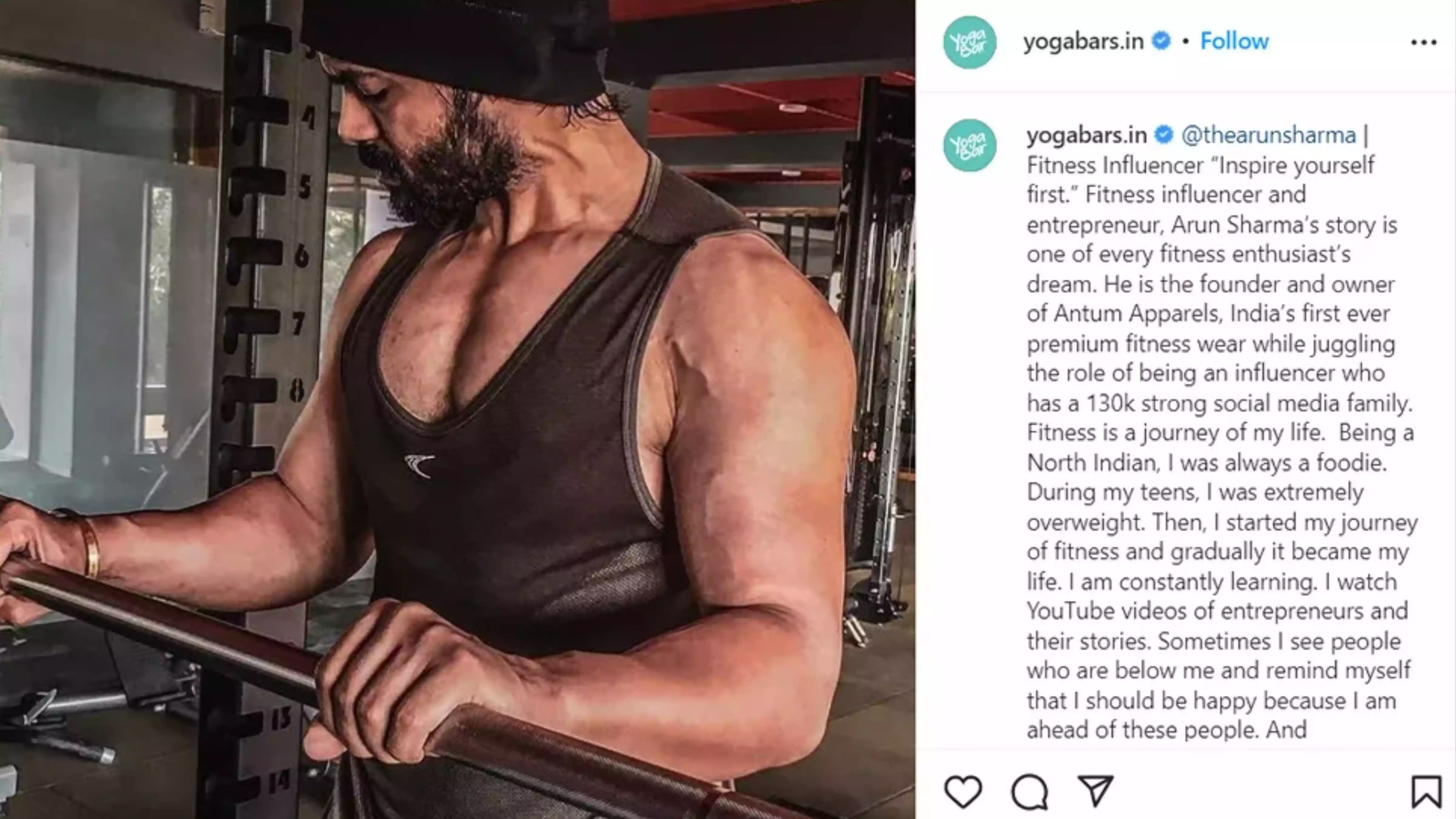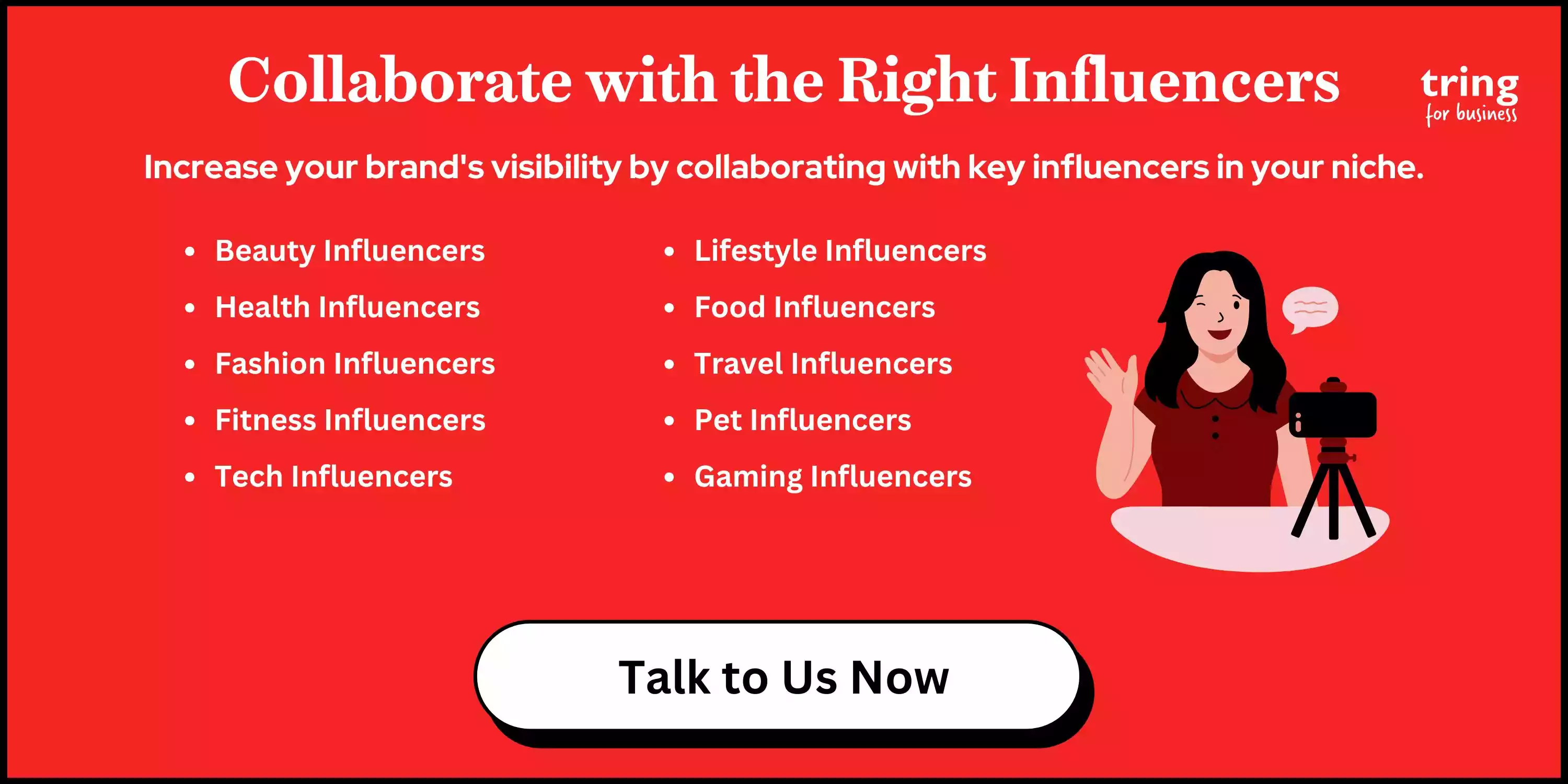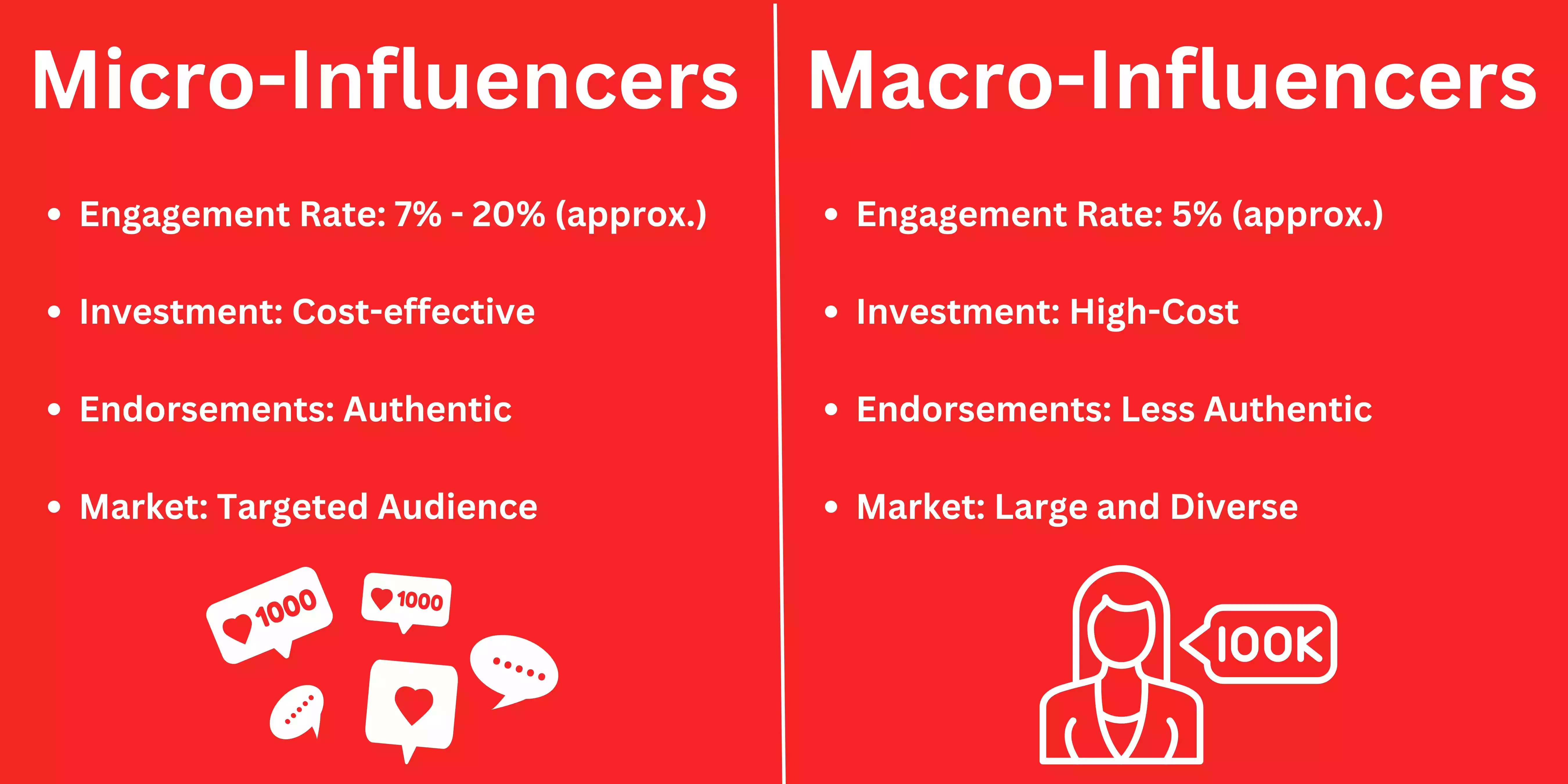What is a Micro-Influencer?
![Micro Influencers micro-influencers]()
A micro-influencer is a person on social media who has between 1,000 and 10,000 followers. These people are not big celebrities or well-known figures but are experts or enthusiasts in a specific area. They often post content related to their interests and have a high level of engagement with their followers. For instance, a micro-influencer could be a food enthusiast sharing recipes or a fitness fan posting workout tips. Their posts are usually more personal, creating a closer and more genuine connection with their audience.
Micro-influencers often share real-life experiences and honest opinions about products they use, which makes their followers trust their recommendations more. This creates numerous successful micro-influencer marketing examples where brands leverage these authentic connections to increase their visibility and sales.
What is Micro-Influencer Marketing?
Micro-influencer marketing involves brands partnering with these smaller-scale influencers to promote products. This strategy relies on authentic and relatable posts from micro-influencers instead of traditional ads. Despite having fewer followers than big influencers, micro-influencers often have highly engaged audiences. This means their followers are more likely to trust their recommendations and buy the products they promote.
By working with micro-influencers, brands can reach niche audiences and get better engagement at a lower cost compared to partnering with celebrities. This makes micro-influencer marketing a smart choice for brands looking to build trust and loyalty among specific groups of consumers. Following are the micro-influencer marketing examples that show how effective this strategy is.
Effective Micro-Influencer Marketing Examples
Micro-influencer marketing has become a powerful tool for brands looking to connect authentically with their audience. By partnering with influencers who have a dedicated and engaged following, brands can build trust and credibility. Here are some successful micro-influencer marketing examples by popular Indian brands.
![Arun Sharma and Yogabar arun-sharma-and-yogabar]() 1. Yogabar
1. Yogabar
Collaborated with Arun Sharma
Yogabar joined forces with Arun Sharma, a well-known Indian fitness influencer and entrepreneur, to spread the message of health and fitness. Arun's expertise in fitness and his genuine approach made him an ideal partner for Yogabar. His appeal and credibility helped Yogabar reach a larger audience interested in leading a healthier lifestyle. Through engaging content and fitness tips shared by Arun, Yogabar was able to connect with fitness enthusiasts who appreciated relatable and practical health advice.
2. Lakmé and Manish Malhotra
Showcased at Lakmé Fashion Week
Lakmé and Manish Malhotra leveraged the influence of Bollywood celebrities and fashion tastemakers to present their products at high-profile events like Lakmé Fashion Week. This collaboration created buzz and excitement around their fashion-forward offerings. By featuring Bollywood stars and popular models, they connected deeply with fashion enthusiasts who look up to these celebrities for style inspiration. The event showcased the latest trends and beauty products, making a lasting impression on the audience.
3. Mamaearth
Partnered with Micro-Influencer Mothers
Mamaearth tapped into the power of micro-influencers who are also mothers. These influencers shared their personal experiences and sincere recommendations, which helped Mamaearth build a connection and trust with other moms looking for reliable baby care and personal care products. The authenticity of these mother-influencers' reviews resonated with their followers, many of whom are parents seeking trustworthy product recommendations. This strategy helped Mamaearth create a strong, loyal customer base.
4. BEWAKOOF
Collaborated with Unique Style Influencers
BEWAKOOF sought out micro-influencers known for their distinct styles and genuine personalities. By choosing influencers who connect well with their brand spirit, BEWAKOOF successfully reached an audience that appreciates unique fashion choices. These influencers highlighted BEWAKOOF's trendy and quirky designs through their engaging social media content, which not only showcased the products but also highlighted how they fit into a stylish, everyday wardrobe. This approach helped BEWAKOOF attract a niche audience that values individuality in their fashion choices.
5. The Moms Co. | Good Glamm Group
Built a Loyal Community with Micro-Influencers
The Moms Co. leveraged the influence of micro-influencers to create a loyal community of mothers. These influencers shared honest reviews and personal stories that encouraged other moms to trust and try out their products. By fostering a sense of community and reliability, The Moms Co. was able to build strong customer relationships. The micro-influencers' authentic content, which often included tips and personal anecdotes, helped other mothers feel more confident in their purchasing decisions, thus solidifying The Moms Co.'s reputation as a trustworthy brand.
Find the Right Influencer for Your Brand
![Find the Right Influencer for Your Brand find-the-right-influencer-for-your-brand]()
Influencer vs. Micro-Influencer
![Influencer vs. Micro-Influencer influencer-vs-micro-influencer]() In the world of social media marketing, both influencers and micro-influencers hold significant power in promoting products and brands. However, understanding the difference between them is crucial for businesses aiming to make the right strategic decision.
In the world of social media marketing, both influencers and micro-influencers hold significant power in promoting products and brands. However, understanding the difference between them is crucial for businesses aiming to make the right strategic decision.
Influencers are individuals who have amassed a significant follower base, often numbering over 100,000 and sometimes even reaching into the millions. These influencers leverage their wide reach to promote products or services to a diverse audience. Brands often partner with influencers to gain broad exposure and benefit from their established trust and credibility among followers.
For instance, when a brand collaborates with a renowned influencer to launch a new product line, the sheer number of followers ensures that the promotional content gains immense visibility. A notable example is the collaboration between Myntra and fashion influencer Komal Pandey. This partnership led to a successful marketing campaign that significantly boosted Myntra's visibility and relevance in the fashion industry. Another example is the collaboration between Xiaomi and tech influencer Technical Guruji, which helped Xiaomi reach a vast audience and solidify its presence in the Indian market.
Micro-influencers, on the other hand, have smaller yet highly engaged follower bases, typically between 1,000 and 100,000 followers. Despite having fewer followers, micro-influencers often experience higher engagement rates, making them valuable for niche marketing. They are more relatable and maintain closer interactions with their audience, which leads to higher trust and authenticity in their recommendations.
Micro-influencer marketing examples demonstrate the effectiveness of this strategy. For instance, a brand that focuses on organic skincare might partner with several micro-influencers who are well-known within the natural beauty community. Each micro-influencer, with their dedicated and engaged followers, can provide authentic reviews and create meaningful content that resonates with a targeted audience.
While influencers offer extensive reach, micro-influencers provide targeted engagement and authentic connections. Brands in India should consider their marketing goals and choose the right type of influencer to effectively reach and engage their audience.
Understanding the Impact of Micro-Influencers
Micro-influencers might have a smaller follower base compared to celebrities or well-known personalities, but their impact on marketing campaigns can be substantial. By focusing on specific niches and maintaining high engagement rates, they offer a unique and effective way to reach target audiences.
Here are some key points highlighting the value of micro-influencers:
![Understanding the Impact of Micro-Influencers understanding-the-impact-of-micro-influencers]() 1. Higher Engagement Rates
1. Higher Engagement Rates
Micro-influencers often enjoy higher engagement rates compared to larger influencers. This phenomenon is primarily due to their niche and dedicated audiences who are highly interested in specific subjects. Unlike larger influencers who have a broad and diverse follower base, micro-influencers cultivate a close-knit community where followers feel more connected and valued.
Research indicates that these followers are more likely to engage with posts by liking, commenting, and sharing, ultimately leading to better brand recognition and conversion rates. Brands can leverage higher engagement rates to foster stronger relationships with potential customers and drive successful marketing campaigns.
2. Targeted Audiences
Micro-influencers specialise in particular areas, whether it's fashion, tech, beauty, or fitness. This specialisation ensures that their followers are genuinely interested in their content, providing brands with access to a more targeted audience. For instance, a brand seeking to market a new clothing line can collaborate with a micro-influencer in the fashion niche to reach fashion enthusiasts directly.
The targeted approach not only helps in delivering the brand message more effectively but also enhances the likelihood of engaging with prospective customers who are already inclined towards the specific niche. By tapping into these segmented audiences, brands can achieve higher relevance and impact.
3. Cost-Effective
Working with micro-influencers is generally more affordable than partnering with celebrities or top-tier influencers. Micro-influencers often charge less for promotions and may sometimes accept products as compensation, making them an excellent choice for brands with limited marketing budgets.
The cost-effective nature of micro-influencer partnerships allows brands to allocate their marketing resources more efficiently while still gaining significant exposure and engagement. Moreover, partnering with several micro-influencers can expand the reach and effectiveness of marketing efforts without high expenses.
4. Authentic Engagement
Micro-influencers are real people who cultivate genuine interactions with their audience. Unlike traditional ads or big influencer endorsements, their content feels more authentic and relatable. This authenticity is a key driver of trust and loyalty towards the brand being promoted.
Micro-influencers often share personal stories and experiences, making their endorsements seem more like friendly recommendations rather than paid promotions. This authentic engagement can resonate deeply with followers, encouraging them to trust the brand and make purchasing decisions based on the influencer's genuine advocacy.
5. Effective Word-of-Mouth Marketing
Micro-influencer marketing examples indicate that these influencers drive more effective word-of-mouth marketing. Their recommendations are perceived as personal endorsements, which carry more weight and credibility than standard advertisements.
This human touch can significantly influence purchasing decisions, as followers are more likely to trust and act upon suggestions from someone they perceive as a peer or an expert within a specific niche. Word-of-mouth marketing generated through micro-influencers can lead to organic growth and increased brand awareness, ultimately driving long-term success for brands.
Connect with the Right Influencer/Celebrity to Boost Your Brand
Looking to promote your brand through micro-influencer marketing? We can help you connect with talented micro-influencers who can effectively engage your target audience. Their authentic approach and close-knit follower relationships make them ideal for creating genuine connections with potential customers.
If you prefer to reach a broader audience, we also have access to well-known celebrities who can elevate your brand's visibility. Whether you choose a micro-influencer or a famous personality, we are here to assist you in finding the perfect match for your marketing needs. Contact us today to get started!
![Connect with the Right Influencer/Celebrity to Boost Your Brand connect-with-the-right-influencer-celebrity-to-boost-your-brand]()
![birthday occasion]() Birthday Gifts
Birthday Gifts
![anniversary occasion]() Anniversary Gifts
Anniversary Gifts
![women]() Women
Women
![men]() Men
Men
![Couples]() Couples
Couples
![Couples]() Wedding Gifts
Wedding Gifts

 Birthday Gifts
Birthday Gifts
 Women
Women
 Men
Men
 Anniversary Gifts
Anniversary Gifts
 Wedding Gifts
Wedding Gifts

 1. Yogabar
1. Yogabar
 In the world of
In the world of  1. Higher Engagement Rates
1. Higher Engagement Rates
 We now support international payments
We now support international payments
